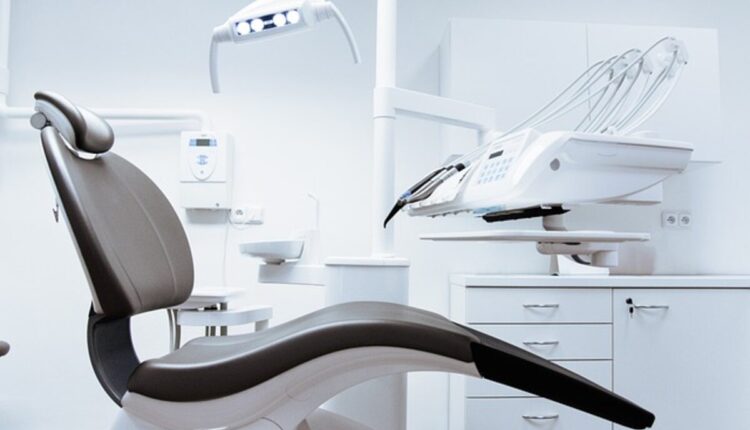Key Takeaways:
- Ongoing education helps dental professionals stay updated with the latest advancements in dentistry.
- Diverse training programs improve both technical skills and patient care.
- Utilizing online resources can provide flexibility and enhance learning opportunities.
- Networking and collaboration are key benefits of participating in dental events and seminars.
The Importance of Continued Education in Dentistry
As dentistry continues to evolve, dental professionals must stay updated with the latest practices and technologies. Ongoing education not only enhances the skills of professionals but also ensures that patients receive the highest quality of care. Committing to regular dental continuing education programs is essential in a field characterized by rapid advancements.
Continued education gives dentists the knowledge to address emerging oral health issues and apply innovative treatments. It enables them to stay ahead of the curve, ensuring they are well-versed in current technologies and methodologies. In a dynamic field like dentistry, learning should always continue. It’s about maintaining a high standard of care and promptly adapting to new and more efficient methods.
This commitment to learning is critical because the dental industry continuously integrates new research findings and cutting-edge technology. Dental professionals can better understand and implement innovative procedures that significantly enhance patient outcomes and overall dental health by staying educated.
Types of Dental Training and Development Programs
Dentists and dental hygienists have various options for continuing education, including workshops, hands-on training, seminars, and certification courses. These programs cover a wide range of topics, from new orthodontic techniques to advancements in periodontal therapies. Each type of training tackles different aspects of dental care, ensuring that professionals are well-rounded and capable of addressing various patient needs.
According to a report, interactive training programs offer better retention of information and practical application. Hands-on training sessions are particularly beneficial as they allow practitioners to practice new techniques, ensuring they are well-prepared to apply these in real-world scenarios. Interactive methods, such as simulations and practical workshops, enable participants to gain direct experience and immediate feedback, which is invaluable for skill development.
Further, certification courses often provide in-depth knowledge and allow dental professionals to specialize in specific areas of interest. This specialization can lead to improved career prospects and the ability to offer a broader range of services within their practice. On the other hand, seminars offer opportunities to hear from leading experts and stay updated on the latest trends and discoveries in the dental field.
The Advantages of Online Dental Resources
Online education platforms offer great flexibility for busy dental professionals. These resources provide access to webinars, video tutorials, and peer-reviewed articles. With the rise of digital learning, dentists can now stay informed about the latest updates in dental care from the comfort of their offices or homes. This accessibility removes the geographical and time constraints that often hinder continuous education.
Online resources are particularly advantageous as they can be accessed anytime, allowing dental professionals to learn at their own pace. This flexibility ensures that even the busiest schedules can accommodate ongoing education, making it easier for practitioners to stay updated. These platforms often offer a wide array of materials, from lectures by top experts to interactive discussions, which can be tailored to individual learning styles and needs.
By leveraging the power of online resources, dental professionals can also participate in global forums and networks, opening up a world of information and diverse perspectives. This broadens their knowledge base and keeps them in touch with global trends and innovations. Ultimately, the ease and adaptability of online learning platforms are pivotal in promoting lifelong learning among dental professionals.
Networking and Collaboration Opportunities
Attending dental conferences and events is invaluable for networking. Building connections with industry peers opens the door to collaborative opportunities and the exchange of innovative ideas. These interactions can lead to improved practices and even new career opportunities for dental professionals.
Events and seminars provide a platform for dentists to discuss challenges, share solutions, and explore new techniques together. This collaborative environment fosters professional growth and inspires practitioners to incorporate new insights into their practices. Networking with peers from different backgrounds and specialties can provide fresh perspectives and approaches to common dental issues.
Additionally, participation in these events often leads to collaborative research projects and partnerships that push the boundaries of dental science. Such collaborations can result in the development of new clinical guidelines, treatment protocols, and advancements in dental technologies, benefiting the entire field and enhancing patient care.
The Impact on Patient Care
Continuous professional development directly impacts the quality of patient care. By remaining up to date on the newest procedures and technological developments, dental practitioners may give patients more effective and efficient care, which improves patient outcomes. This approach builds trust and reliability within the dental practice.
Patients benefit immensely when their healthcare providers are knowledgeable about the latest advancements. It enhances the patient experience and ensures they receive the best care possible. A well-educated dentist can diagnose and treat conditions more accurately and efficiently, reducing the need for repeated visits and increasing patient satisfaction.
Furthermore, informed practitioners are better equipped to educate their patients about preventive care, helping them maintain oral health and avoid more severe issues. This proactive approach improves individual patient outcomes and improves community health.
Conclusion
In conclusion, ongoing education is a cornerstone of excellence in dentistry. The benefits are manifold, from improving practical skills to fostering collaboration. Investing in continuing education allows dental practitioners to improve their job prospects and their patients’ general health.
The commitment to staying current with educational advancements in dentistry is a testament to a professional’s dedication to their practice and patients. This commitment results in better healthcare outcomes and a culture of continual improvement within the dentistry community. Adopting a lifelong learning philosophy guarantees that dentists stay on the cutting edge of their industry, providing top-notch care and developing procedures that preserve oral health.

